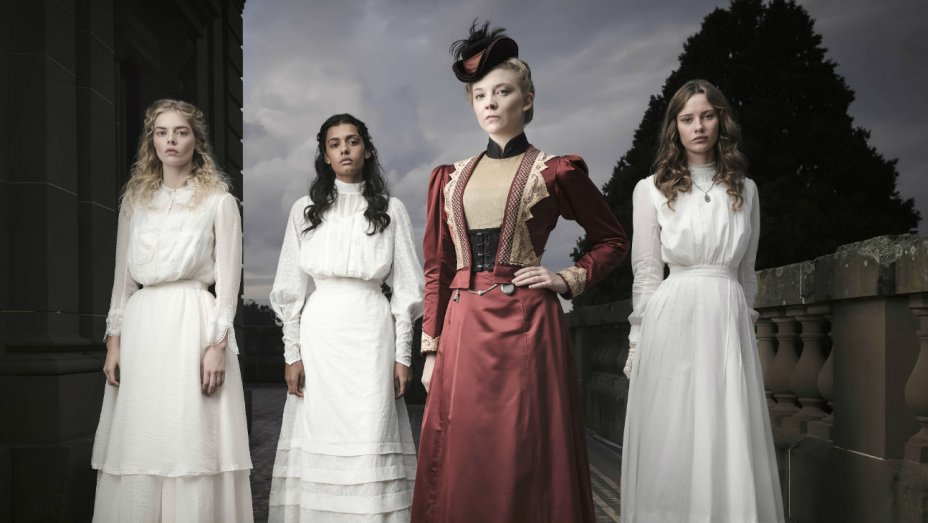Joan Lindsay’s 1967 novel Picnic at Hanging Rock has already been adapted into a highly-acclaimed film by Peter Weir (available in an excellent Criterion edition) and even a 2016 theatre version, but it gets the Prestige TV treatment this weekend courtesy of Amazon. While your first instinct may be, like mine, to wonder what could possibly be done in a series that wasn’t done in the film, it makes perfect sense for Amazon to take a risk on this project if you think about it. Amazon is surely looking for their breakthrough series, much like Hulu found with the Emmy-winning “The Handmaid's Tale” last year. Much as that series had already been a novel and film, here we are with the same lineage for “Picnic at Hanging Rock,” also a work that centers female voices and characters, both on-screen and off. Sadly, this feels unlikely to be a “Handmaid’s Tale”-level hit for Amazon, for while it’s solid enough to warrant a look, it’s also a bit too inconsistent and bloated to rise above the crowd.

Natalie Dormer—Margaery Tyrell from “Game of Thrones”—stars as Hester Appleyard, the headmistress of a school of manners for young ladies in Australia at around the turn of the century. This is a time when people say, in all seriousness, “Your worth will be set by your future husband.” The show leans into the antiquated view of womanhood in this time and place, even comparing the young ladies to horses being groomed for auction, but there’s an unmistakable undercurrent of rebellion against this viewpoint. It’s there in Dormer’s confident, strident performance, as her take on Appleyard is a woman who has a dark past with violent men. And it’s there in the way the show allows its female characters to explore their sexuality in ways the etiquette of the time would never allow.
The plot of “Picnic at Hanging Rock” centers on a Valentine’s Day picnic for some the young ladies. After some eating and talking in the woods, three students and a teacher head off to the titular Hanging Rock, and simply disappear. Much of the series takes place after the disappearance, which happens at the end of episode one, although that day is revisited later in flashbacks. The search for the girls, the public response to their disappearance, questions about people around the girls that day—much of “Picnic at Hanging Rock” plays like a mystery series. Call it “Law & Order: Australia.”
But the brilliance of Weir’s film is its refusal to play like a traditional mystery. The book notoriously was released with its final chapter excised, creating an open mystery around what actually happened. That’s what Weir understood so completely—that it was more about mood and atmosphere than facts. As Roger said when he inducted the film into the Great Movies pantheon, “For us, as for them, the characters who disappeared remain always frozen in time, walking out of view, never to be seen again.”
That kind of mysterious uncertainty is a lot easier in film than TV (unless you’re David Lynch) and this version of “Picnic” often feels too literal. It’s far more interesting when it embraces the dream logic of Weir’s film, and when it allows future star Samara Weaving, who plays one of the girls, ample screen time. Dormer is good but seems a little too modern for the time period. Most of the rest of the cast are newcomers.
Most of all, “Picnic at Hanging Rock” is a project that works better at the length of a feature film than a six-hour series. In the mid-section of the season, scenes start to feel overheated, as if the producers are worried that you’re starting to get bored (you probably are). Memorable performances and solid production values just don’t matter if a narrative sags. It may not be what Netflix, Hulu, or Amazon want to hear, but not every book or film works as a TV series.












